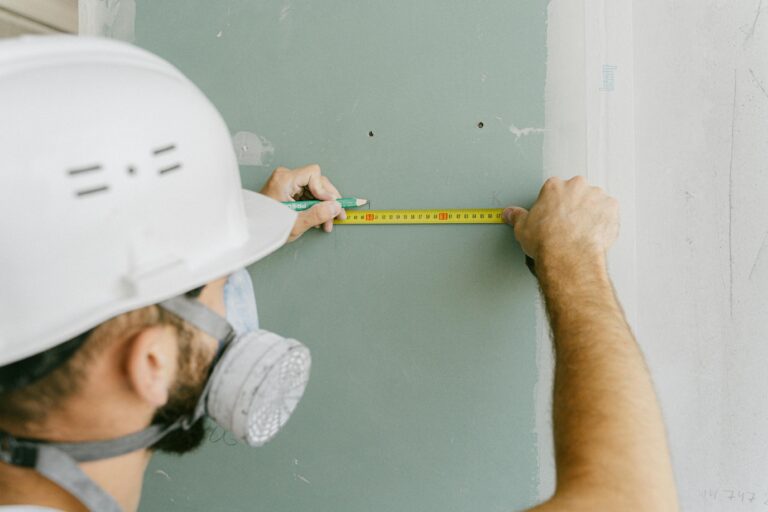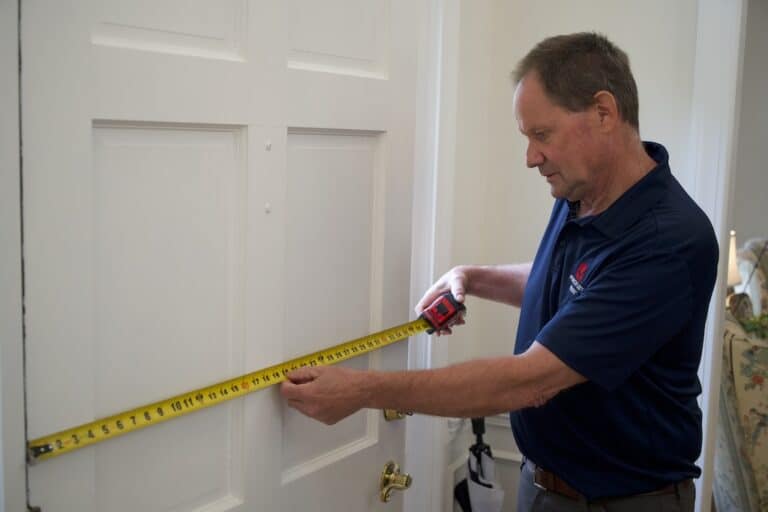In honor of National Senior Citizen’s Day, we want to address one of the most important topics on the mind of millions of people in America and around the world right now—senior adults are trying to put off plans to move to nursing homes this year more than ever.
We understand how quickly a senior citizen’s independence can be lost
We know the vast majority of senior adults 65 and over want to stay in their own homes as long as possible and don’t want to move to a nursing home. That’s never been more true than this year with COVID-19 causing so much havoc. We want you to be safe and comfortable in your own home as long as you can, too!
Even before COVID-19, we had loved ones who were living at home independently and doing great. Then they got up on a ladder or a chair and fell. Suddenly everything changed. A broken hip or a skull fracture led to many surgeries, complications, and months of pain and suffering.
Our family members had to go to the hospital, rehab facilities, or nursing homes. For several loved ones, their falls eventually resulted in death. It was tough on them and on everyone who cared about them.
One fall can take a healthy senior citizen from independence to a hospital or nursing home.
If you are serious about not wanting to move to a senior citizen’s home or rehab facility, we’ve got you covered!
Want to avoid a nursing home? Follow these health and home safety tips!
We love our senior adults and want to help you stay healthy and strong so you can keep living at home as long as you want to.
Note: If you have any questions about your medical conditions and whether it is better to be home or in a nursing care facility, please consult with your doctor.
The biggest two reasons people end up in nursing homes are related to senior health:
- Falls
- Lack of activity
So we want to share the most sure-fire ways to help you enjoy your precious home-sweet-home for a long time to come.
- Avoid dangerous activities
We get that it’s hard to give up doing things for ourselves. A lot of us don’t like to ask anyone to help us or pay anyone to help us with something that seems so simple that we have done 148 times before.
But every decade we age after our 30s, our bones get more and more brittle and we lose more muscle strength each decade after that, as well. A fall that wasn’t a big deal when someone was 22 can become a life-threatening problem once that same person is over 65 and the danger increases the older we get.
There are some things that just may not be worth doing for yourself if you really want to age-in-place at home and avoid the senior care home scene.
Senior safety means—let someone else handle the high and heavy stuff like:
- Climbing ladders and dealing with ladder safety issues
- Changing high lightbulbs
- Painting the walls, trim, or ceilings
- Installing light fixtures and ceiling fans
- Getting things out of the attic
- Picking up that heavy box on the highest shelf
- Trimming branches high up in a tree
- Climbing on the roof
Anyone in your home who does use a ladder should follow ladder safety tips. Injury prevention is critical for everyone’s health and safety.

2. Try to Prevent falls at home
Falls are often preventable if you reduce potential hazards in your home. 80% of falls happen in the bathroom so that may be a great place to start implementing fall-prevention strategies.
Home safety for seniors starts with taking measures for slip, trip, and fall prevention.
Reduce fall risks in your home:
- Change out tubs to walk-in showers or a walk-in tub.
- Install safety grab bars in tubs and showers and near toilets.
- Remove loose rugs or place non-skid mats beneath them.
- Be aware of your dog or cat so they don’t get underfoot and trip you.
- Be sure to have sturdy handrails on both sides of any steps.
- Have door frames widened if you need a walker or wheelchair.
- Add plenty of lighting especially along stairs and dark hallways.
- Use your walker or cane if you need it to keep you steady.
We’d also recommend that seniors wear a panic button pendant or smartwatch that can alert loved ones or emergency responders if that person has fallen or needs help.
A trusted handyman near you may be able to help with implementing some of these fall-prevention ideas.
3. Eat a healthy diet
Being able to stay at home is about more than just preventing falls. We know people need to think about senior whole health. This means your safety, physical health, mental health, social health, and everything!
When you take good care of your body, it can take better care of you. Check with your doctor or nutritionist about the best diet for your medical conditions and medications. Generally, eating lean meats, fresh fruits and veggies, whole grains, and healthy fats like avocado and olive oil can be a good start. And consider drinking mostly water as your beverage.
A healthy diet can keep your body working at its best which can help you avoid falls.
When you avoid a lot of sugar, junk food, and high-fat foods, you may just be able to lose those extra pounds which makes getting around easier on your joints and may help you with balance. A healthy diet can also decrease inflammation that contributes to arthritis pain, cancer, auto-immune diseases, and help keep diabetes at bay or under control.
Your doctor or a nutritionist or registered dietician can help you develop the best eating plan for your particular situation.
4. Engage in appropriate exercise
Talk with your doctor about the best exercise program for you that will help you keep your muscles strong and help you stay flexible. You can also ask about special exercises to slow bone loss. There are even special fall prevention exercises you can do.
Some seniors choose walking every day, doing yoga classes on TV, dancing, or swimming. Whatever you decide, do something you enjoy that is doctor-approved.

5. Get proper rest
When you don’t get enough sleep at night, it’s easy to catnap all day and miss out on life, exercise, and activities. Aim to get the rest you need at night and ask your doctor for help if you are having trouble. Getting your rest will help you not be so drowsy in the daytime and help prevent falls.
If you aren’t sleeping well, check with your doctor. Sometimes a sleep study will show that a CPAP machine could help with severe snoring. Or a change in medication or diet may help with some underlying medical conditions like restless leg syndrome, arthritis pain, or other medical concern.
6. Be proactive with any medical conditions
Some of the big reasons older adults fall are medical-related issues. The wrong prescription glasses or poor hearing can contribute to your falling risk. Certain medications can make you dizzy or drowsy.
Talk with your doctor or pharmacist about if any of your medicines or over-the-counter medications may be contributing to dizziness or have a high fall-risk.
If you feel dizzy when you first stand, remember to stand up slowly from a sitting or reclining position. And keep in mind that certain substances like alcohol and other drugs may make you more sleepy, dizzy, or disoriented.
7. Stay in touch with social connections
Being in touch with family, friends, and loved ones helps you stay mentally and physically healthy and vibrant. That is a bit tricky this year because of COVID-19, but invite your family to help you connect online on a tablet or a smartphone or even an Alexa device for video calls. When you get to see and talk with people you care about, you feel better and enjoy life more.
Even the simple act of writing letters or calling people on the phone can help you feel connected and loved.
Find ways to volunteer and contribute to helping others from home. Volunteering gives you a sense of purpose which is vital for living your best life. Some people love to cook meals for others, make baby blankets, build birdhouses, or call other senior adults from their church or religious group to check in on them.
A dog or cat can be a lot of company as a companion. Holding a pet can reduce your stress and bring you tons of joy. Just be careful because sometimes they like to get under your feet and trip you. So please choose wisely and keep an eye out for your little buddy.
8. Stimulate your mind
Sitting in front of the TV all day won’t do much other than increase your anxiety. Find some interesting activities you enjoy like crossword puzzles, word finds, Sudoku, or jigsaw puzzles to keep your brain engaged.
Read books that intrigue you and take you to faraway places or back in time in history. Develop hobbies like gardening, painting, or something else that grabs your imagination.
9. Wear proper footwear—even indoors
Wear non-skid, low-heel, rubber sole, supportive shoes rather than flip flops, sandals, socks, high heels, or dressy shoes with slippery soles. The right shoes give you much better balance and help you avoid slipping.

Senior independent living options
There are other options, depending on your particular medical and financial situation, that may allow you to stay at home longer even if you can’t live totally alone. Sometimes, you just have to get creative to find alternatives to a nursing home, as long as your doctor is on board.
House-sharing
You may be able to invite a good friend to live with you. Or perhaps a trusted family member may like to split living costs and can be around to help with certain tasks (multi-generational living). Some seniors also find roommates they enjoy.
Senior independent living communities
Some older adults like to live in neighborhoods with other retirees. Each has their own home but there are lots of neighbors around and potential friends and activities to do.
Bring in a caregiver
Depending on your health, there are a number of options here. You may just need a senior helper to come in a few hours per week to help with shopping and chores. Or perhaps all you need is a maid service once per week and you can handle everything else.
If you need a bit more help, you may have a family caregiver or two who would be able to help you during the day or stay sometimes at night. Or you may need a live-in caregiver who stays with you day and night and can be there to help with cooking, hygiene, minor housework, and helping you with daily activities.
Home nursing care
If you need skilled nursing care, you can have a nurse come to your home several days per week or possibly even more often, depending on your situation. This may allow you the freedom to stay at home longer.
A home health nurse can help you with medications, some checkups, and a large variety of services.
Ready to work on fall-prevention interventions in the Columbia, SC area?
It may feel like calling someone in to help with chores and home maintenance you used to handle on your own is unnecessary. But that little phone call and the small fee for a handyman’s help will only cost a tiny fraction of what one fall may cost you and your loved ones.
Allowing a handyman to handle the dangerous things and to help you fall-proof your home may just give you many more years of health to enjoy at home-sweet-home.
We’d love to be of assistance! Check out the services we offer here.
Please contact us today to help keep you and your loved ones safe!
Related
For Senior Adults, Using a handyman Can Prevent Dangerous Falls
Home Safety Tips to Protect Your Family
6 Mood-Boosting Projects to Try During Social Distancing and Beyond
Easy Ways to Improve Your Home’s Security to Protect Your Family
How Can I Find a Good Handyman Company?
Resources
Fact Sheet: Falls—the Biggest Threat to Senior Health and Safety by www.aging.com
Preventing Falls in Older Adults by www.aging.com
Prevent Falls and Fractures by National Institute on Aging
Aging in Place: Growing Older at Home by National Institute on Aging
Why a Home Health Nurse Could Help You Stay at Home Longer by www.aginginplace.org
Ladder Safety Tips by NSC (National Safety Council)







